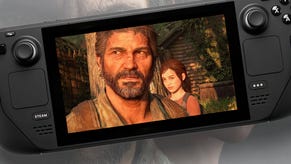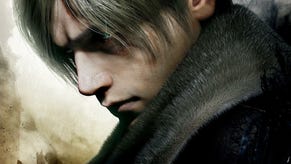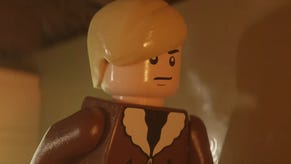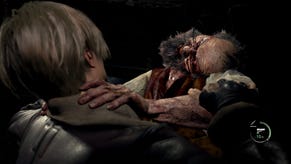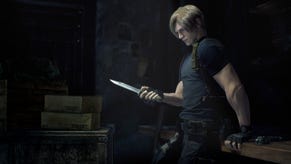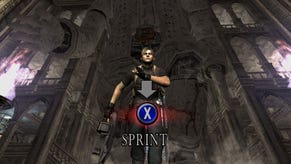Why I Hate… Resident Evil 4
Contains scenes of violence and snore.
The thing about sequels is you know what to expect. The conventions of the franchise are usually well established; they're familiar, comforting even. They're what gives the game its identity.
Games critics try to approach sequels with an understanding of what the franchise in question does well and where it could improve. Plus, most of all, the elements which define it as that type of game. Like any gamer, if we loved the previous instalment we really want more of the same, but better.
Then the inevitable occurs. A formula starts to feel old, so Leading Publisher X promises a dramatic reinvention for Huge IP Y with a focus on Flavour Of The Month Game Feature Z.
The end result? All too often, the core elements which should be retained and built upon are abandoned and the game becomes something else entirely. Something unfamiliar, strange and awkward, which bears only a passing resemblance to what's gone before. Something which doesn't quite belong.
Which brings me to Resident Evil 4.
I'm a huge fan of survival horror, but even I agree that Resi needed a kick up the arse. By the time Resident Evil Zero arrived in 2003, all that clunky wandering around creepy-but-static mansions, sipping coffee through door opening animations and battling the fixed camera had started to infect the game's fun factor. It was time for a change.
Capcom knew this. And so the first iteration splintered off to become Devil may Cry, while another stab saw a new-look Leon S. Kennedy battling a monster with a hooked hand in a haunted house.
The iteration which made the most sense to me followed on from the excellent Code: Veronica - a fateful charge into enemy territory at Umbrella's European HQ; answers to the questions swirling around Oswald E. Spencer; a battle against a super-powered Albert Wesker; maybe even a revelation about the mysterious shadow company he'd joined, which I'd long suspected could emerge as the series' new Big Bad Biocorp.

Then Shinji Mikami stepped in and ruined it all with three simple words: "Umbrella was finished."
Come again?
This is one of the biggest reasons I hate Resident Evil 4. I'd spent the best part of eight years watching Umbrella get built up to the point where I was dying to take them down. That pleasure was snatched from me, suddenly and unceremoniously, in a single cut-scene.
And what were the series' iconic zombies and devastating viruses replaced by? A mutating midget in a pirate hat. An Emperor Palpatine clone with a giant scorpion tail. An army of quasi-intelligent parasite-infected villagers who were so savage they couldn't even use firearms... Except for the ones who could. What?
And what was Leon's motivation for being there? To save the President's daughter.
Right.
Resi 4's story had squat all to do with the rest of the series up to that point. Putting aside Leon in the lead role, Ada turning up unannounced and a cameo from Wesker, the game could be part of a separate series altogether. It's like Ubisoft deciding the Templars are a bit boring and those Assassins should battle little green men instead.
Compare Metal Gear Solid, another stalwart of late nineties, story-driven action adventure gaming. Like Resi, it was a series born of individually conceived, separately told narratives. These were interwoven to form a larger mythology.
Hideo Kojima has gone on record to say he didn't plan it out all in advance, George Lucas-style. All the same, there was never a sense that the MGS team was making up the storyline as it went along. When Old Snake learns the true nature of MGS4's titular Patriots, a decades-spanning story is cast in an entirely new light.
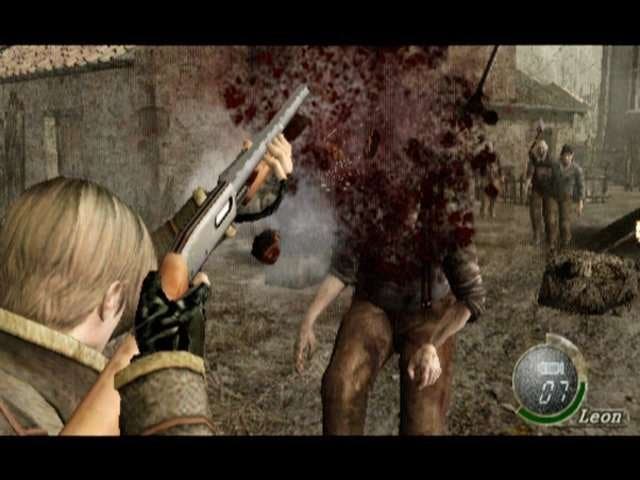
The Resident Evil team seemed to lack this ability to spin a yarn and keep the big picture in mind. And it all came to a head with the end of Umbrella.
The problem is that as long as a videogame is fun, its storyline is often thought of as something which is just a bit of a bonus. Publishers continue making the interactive equivalents of Highlander 2 and only the most hardcore seem to notice or care.
We deserve better. The medium deserves better.
But that disappointing plot twist isn't the number one reason I hate Resident Evil 4. It's the gameplay. To be specific, it's the fact I spent the 20-odd hours playing this brand new Resident Evil game wondering when I was going to get to the Resident Evil bits.
Picture your favourite contemporary game series - for the purposes of this example, let's say it's Call of Duty. Now imagine picking up Call of Duty: Red Insurgencies (play as the Soviet Secret Police, folks!).
On booting up the game you discover the template has subtly shifted: it's now an open-ended, emergent Bioshock-style shooter. All that linear action movie pacing has been taken out and there's nary an explosive set-piece in sight.
Or how about this: imagine excitedly loading the latest Final Fantasy, only to find the expansive overworld adventuring you know and love has been replaced by endless treks round lavishly decorated, sparsely interactive linear corridors. Oh, hang on...


